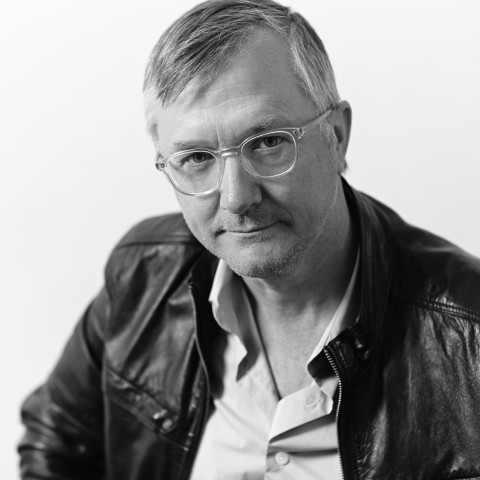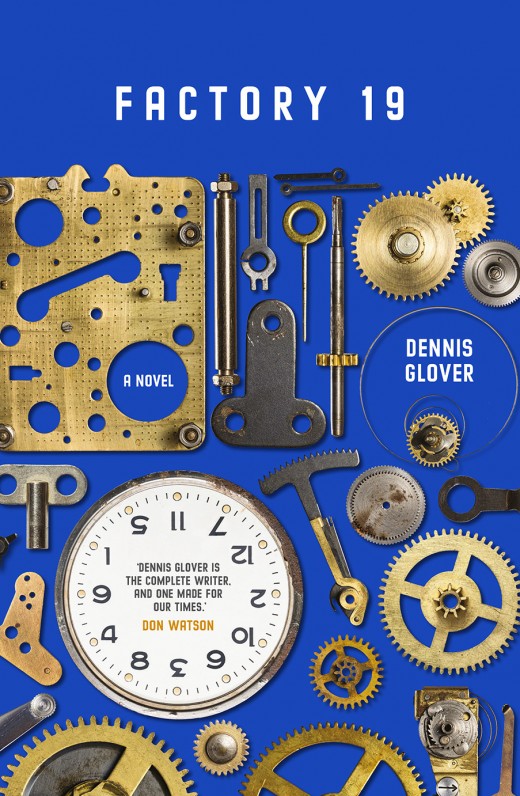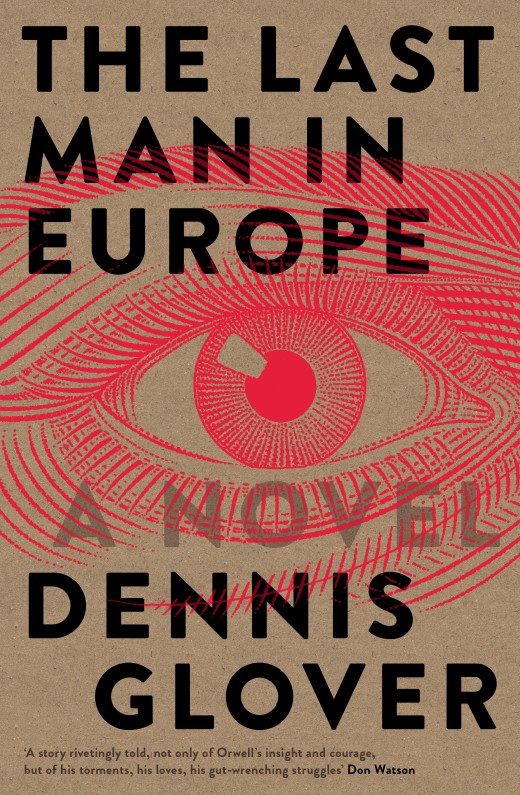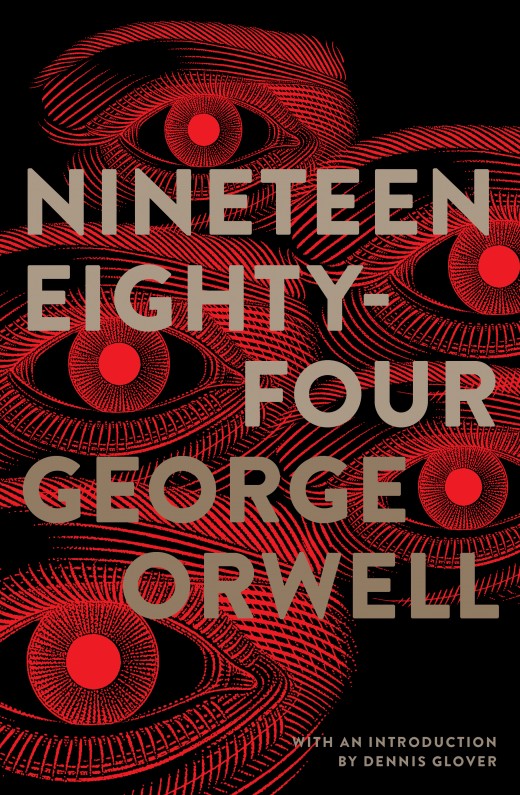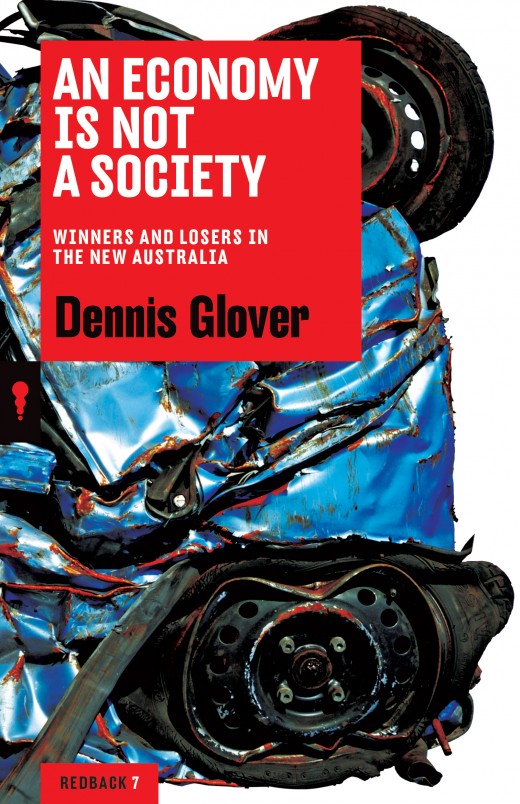News
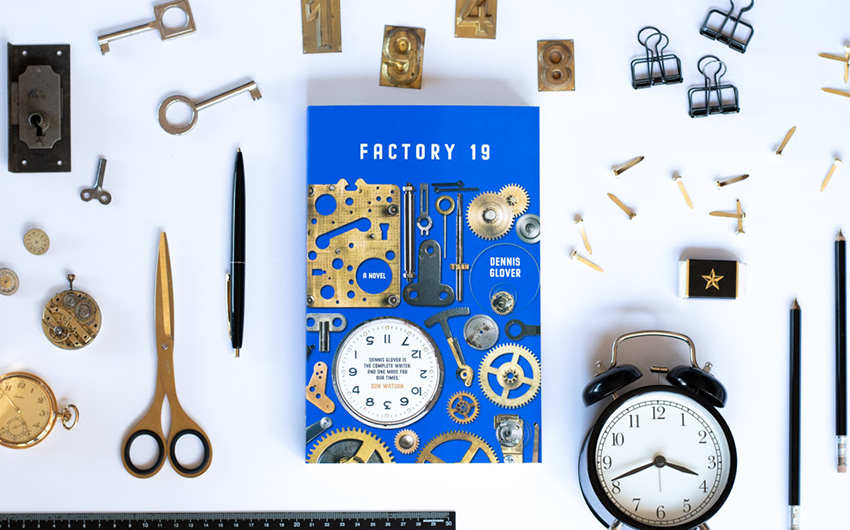
News >
Author Q&A: Dennis Glover on Factory 19
We spoke to the author of the darkly funny Factory 19 about nostalgia, Orwell and the working class.
Where did the idea for Factory 19 come from?
Before The Last Man in Europe, I wrote a novel about the end of the world in which a new brand of mobile telephone gave the entire human race fatal brain cancer. In one of the sub-plots, one group of survivors were members of a university history department, led by an eccentric professor who was trying to recreate how people lived before the computer and had banned the use of mobile phones. As part of his experiment, he created a factory where people worked, there were broadsheet newspapers, milk was delivered each morning and they used old fashioned Bakelite handset phones. I decided it was too silly to publish and too derivative of The Day of the Triffids – one of my all-time favourite books, and threw it on the pile.
Then one night I got drunk with a former premier of Tasmania who told me all about MoNA and how he thought that one day MoNA’s founder, David Walsh, would, like Willy Wonka, turn up and put a sign on the gate saying: ‘Thanks for enjoying my art. Now piss off!’ Dundas Faussett was born.
What is Factory 19 really about?
It’s the coming together of lots of serious ideas that I’ve been wanting for ages to talk about.
Most deeply, perhaps, it’s about the past. I’ve been obsessed about history my whole life. I’ve even got a PhD in history from Cambridge – that’s how obsessed! It seems to me that to be a real historian you actually have to like the past – prefer it even. I know that’s kind of a crazy thing to say in this day and age when the past is seen as the repository of every form of discrimination and inequality, but what if you could choose the good things from the past you wanted to keep? Not the racism and sexism and other horrible things, of course, but the good things, the things that were arguably better than today ... or at least better than the future that seems inevitable, like factories that gave working class people permanent and meaningful and well-paid jobs ... unions that gave them political and economic power ... the beautiful clothes of the 1940s handmade out of natural fibres, not horrible synthetics … vinyl LPs that were works of art in themselves and provided a living to musicians, not digital recordings which give all the money to streaming services like Spotify ... big, fat broadsheet newspapers that weighed a ton and gave lots of jobs to journalists ... real universities not online ones ... real jazz ... glam rock … and so on. What I’m saying is, there’s a model for a better future ... it’s called the past. If we could pick and choose the good things of today and yesterday, imagine what a great world we could create. But is that possible? Is it all or nothing? Do you have to accept tuberculosis along with Spitfires?
It’s about nostalgia. I think nostalgia is very underrated. As well as being a record of human failure, the past is also a repository of human freedom, if we try hard enough, that is, to see it. Nostalgia – the longing to recall and relive the past – is the emotion that makes us capable of seeing this. For example, there was no electronic surveillance before Google and all those CCT cameras. Our children weren’t addicted to screens, but watched TV in front of the fireplace as a family. (Can anyone remember that? God, I can!) Working class communities had prosperity, not unemployment, squalor and methamphetamine epidemics (think of Detroit and Pennsylvania fifty years ago and now). They had factory jobs where they made beautiful things like cars, not jobs at Amazon fulfilment centres where their every step is recorded on digital wristbands ... Our politicians were serious people, grownups, not inadequate children … All this makes Factory 19 not a dystopia but an arcadia – and therefore a real place that once existed!
It’s about the internet. There are lots of novels about the dystopian digital world, like Dave Eggers’ The Circle (and, without modern computers, Nineteen Eighty-Four). But what if we simply switched the internet off at the wall and tried to live like it never existed? I think a lot of people would seriously like to give that a try. I can’t believe no one has thought of this before.
It’s about my own life. I was a political speechwriter (who once wrote for Prime Minister X), my mother was the factory tea-trolley lady, my sisters worked on the production line (as I did during university holidays and afterwards), my father was a car assembler who was replaced by a robot, just like Art …
It’s about my hometown and what happened to it. I grew up in Doveton – a Housing Commission village-suburb created in the late 1950s to house the people who worked in the big factories along the Princess Highway. People dismiss us as ‘housos’ now, but those suburbs sprung from the once utopian idea of providing good quality houses and jobs for working people. (This is ‘Bobbietown’ in Factory 19.) My father worked at GMH, my mother at Heinz, my sisters at Heinz and the Cadbury chocolate factory, and I worked at Heinz and the nearby Peter’s Ice Cream and a pump manufacturing plant. The working class never had it so good. Then the factories shut and ever since Doveton has had around 20 per cent unemployment. For the people of Doveton there is no question about it: life was better back then. So Factory 19 is a love letter to my past.
It’s a satire and a fable. I’ve always intended to write a novel about Doveton (I’ve already written a non-fiction book about it: An Economy is Not a Society) but you don’t want a dreary novel of social realism, with lots of unemployment, broken families, drug addiction and so on … You want a bit of uplift. That’s what I’ve tried to provide. It only occurred to me after I’d finished it that what I’d written was George Orwell’s Animal Farm, but with humans instead of animals put in charge. If at times Factory 19 seems fantastical, it’s meant to be. Can the animals win and create a better world? Now there’s an idea! That’s what the novel is about: a call to create a better place for ordinary people.
It’s about Thomas Piketty. Capital in the Twenty-First Century is about Les Trente Glorieuses – the thirty glorious years after the second world war when the living standards of the working class rose like never before in human history and the boss earned no more than 5 or 6 times what the janitor did – and its unwinding, which started in the late 1970s when the unions overreached in the Winter of Discontent and the social-democratic dream was taken apart by Thatcher and Reagan and Hawke and Keating. So I’ve turned that 685-page manifesto into a novel. Capital: The Novel, if you like. Capital essentially tries to tell us how we ended up with the world we have now, where the people who used to work in factories and join unions and vote for the left began voting for people like Donald Trump. We destroyed their world and they voted for someone else – it’s simple really. Factory 19 is, therefore, a metaphor for what’s happened to the world we once knew.
Ultimately, I set out to write something different from the typical Australian novel of today. Here’s something completely new.
Factory 19 is in bookstores now.
Share this post
About the author
Dennis Glover was educated at Monash and Cambridge universities and has made a career as one of Australia's leading speechwriters. His first novel, The Last Man in Europe, was published around the world in multiple editions and was nominated for several literary prizes, including the Walter Scott Prize for Historical Fiction. His second novel, Factory 19, was published in 2020, and his third, Thaw, in 2023. His book-length essay An Economy Is Not A Society was …
More about Dennis Glover


